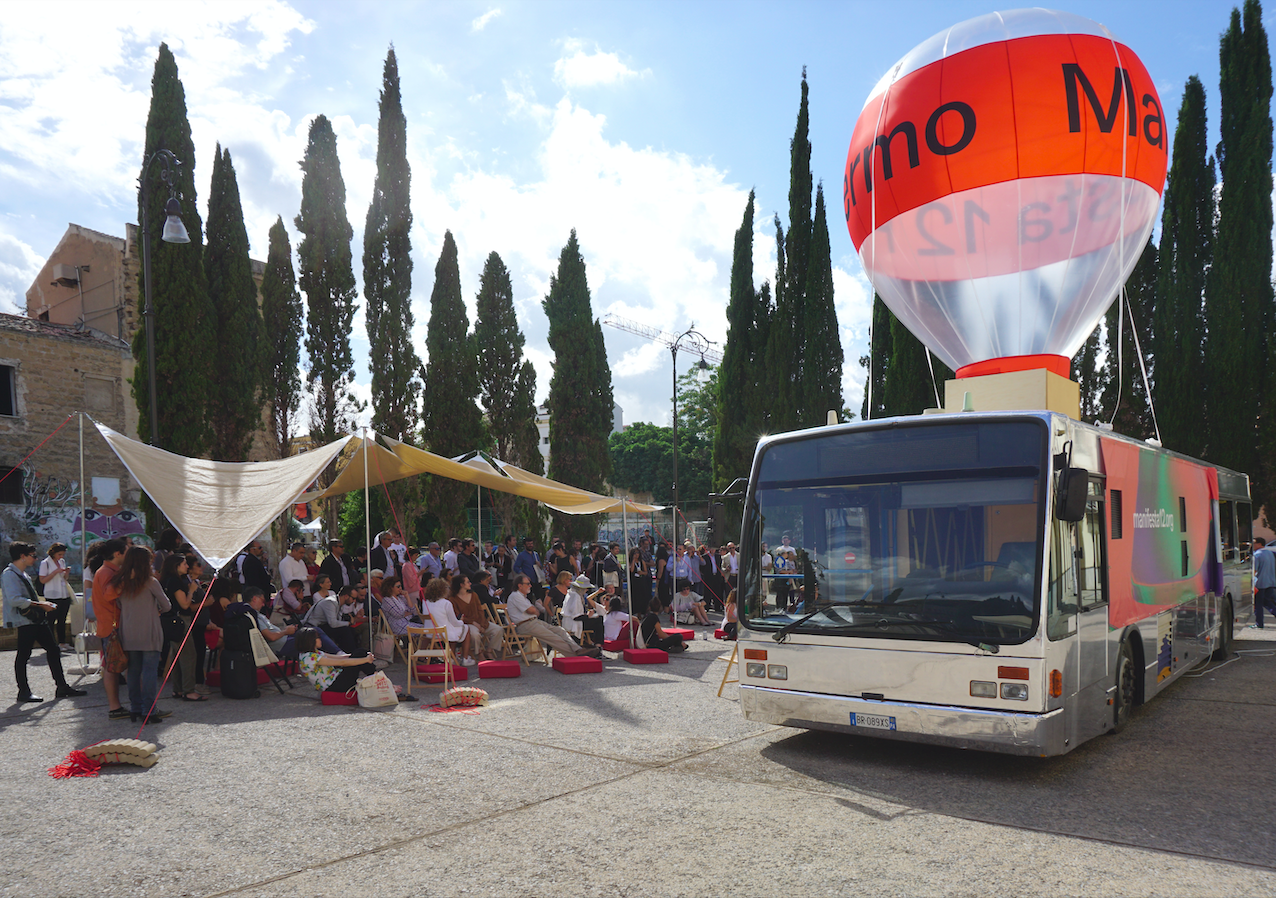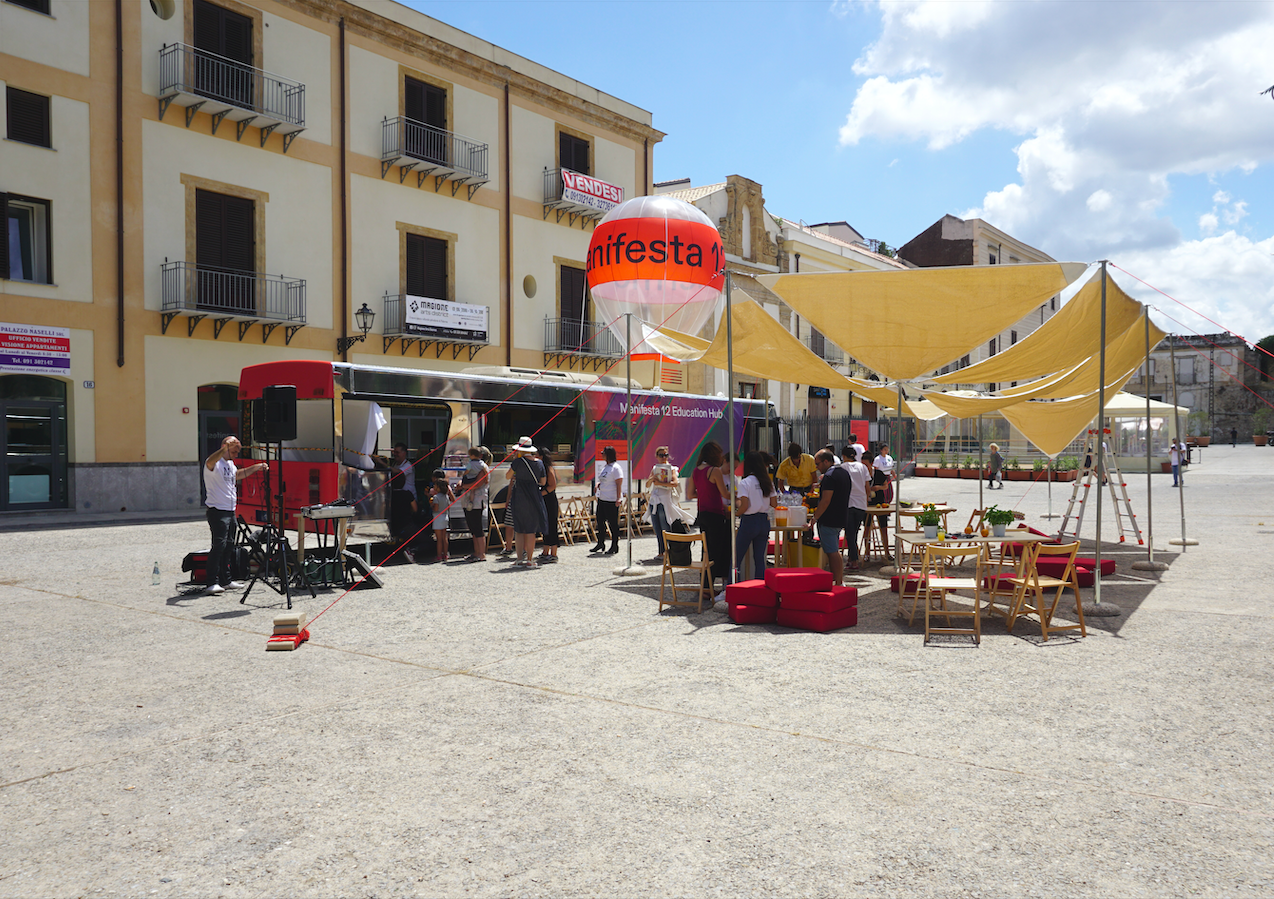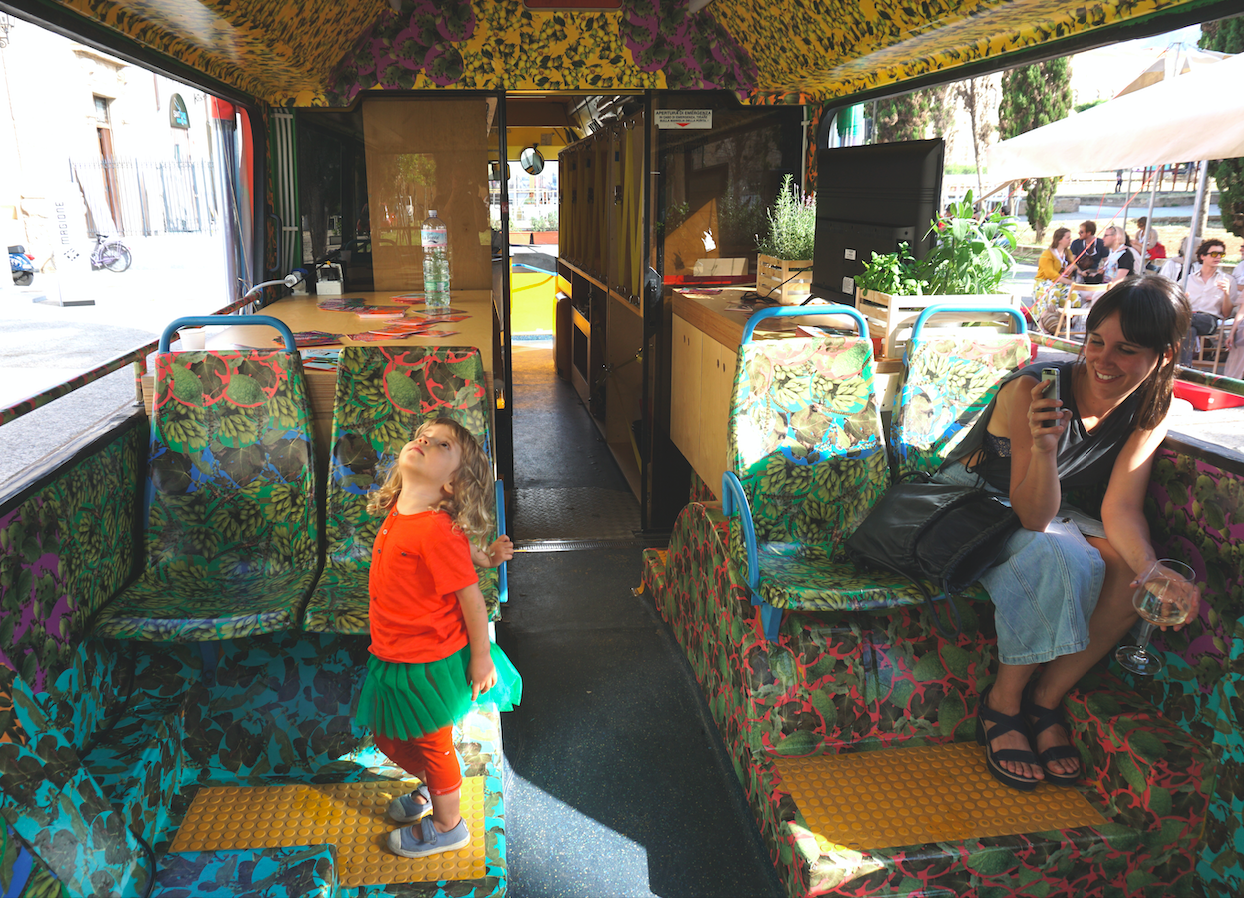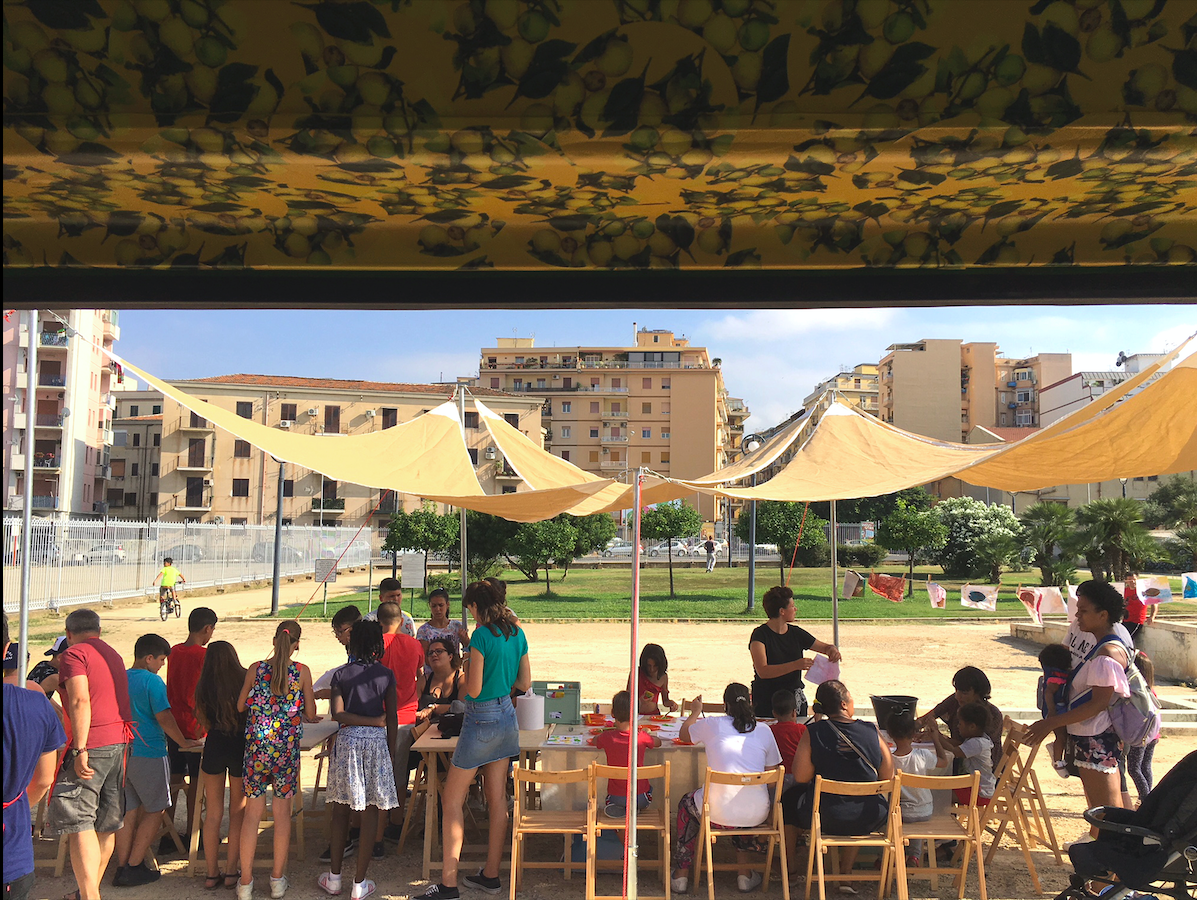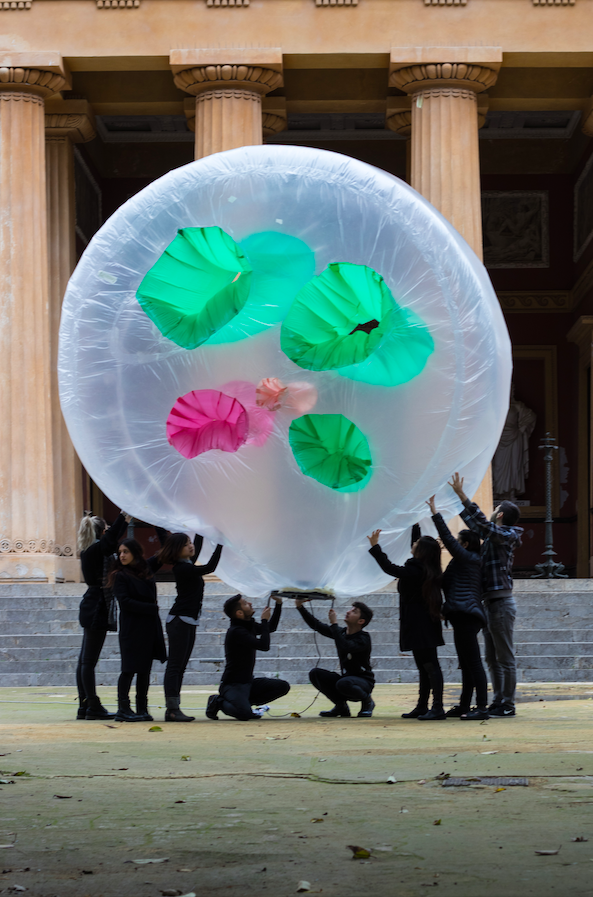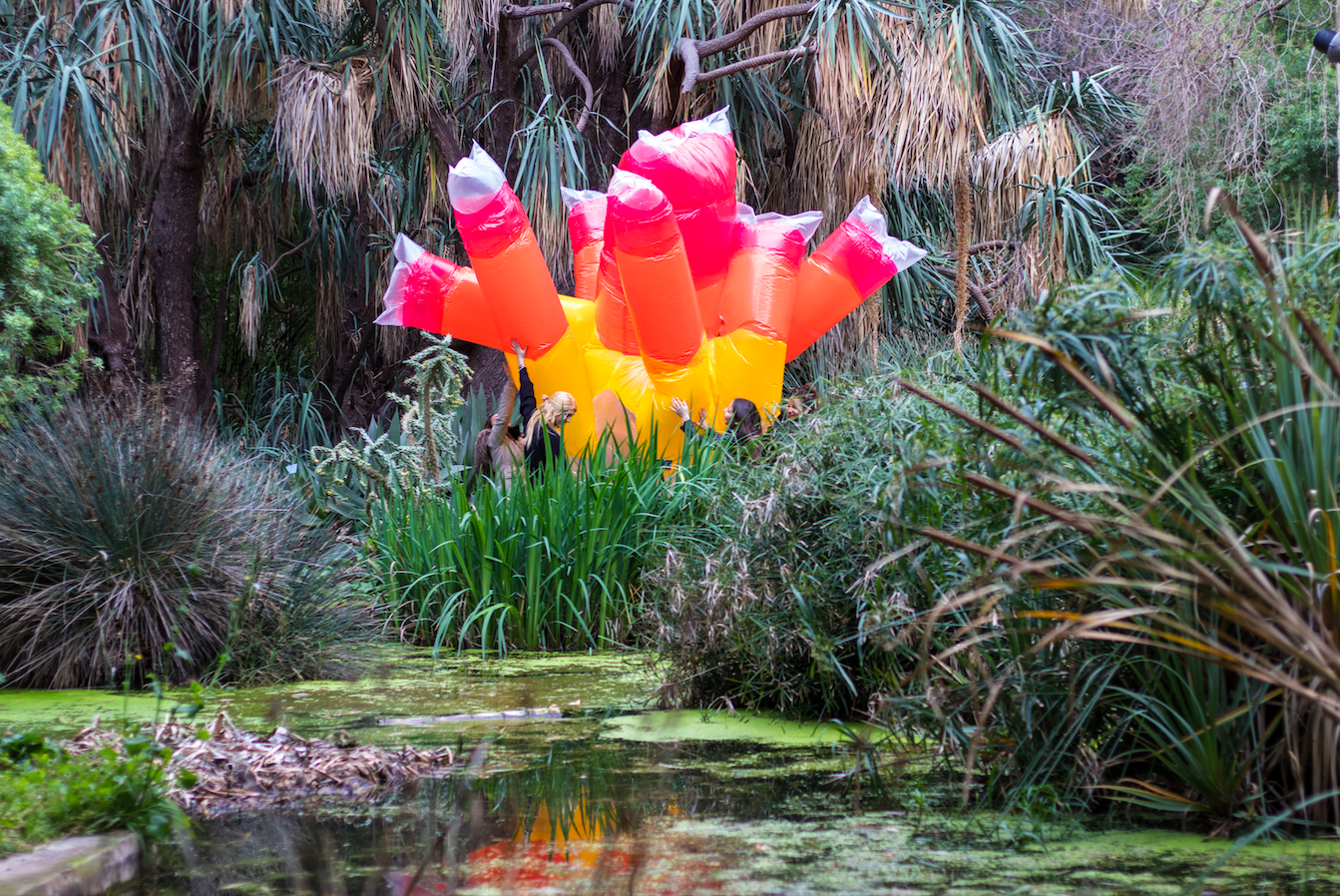Manifesta12 Education HUB
Basic information
Project Title
Full project title
Category
Project Description
For nine months, ENORME studio, together with students of design and fine arts of the university of Palermo, has been developing the transformation project of a regular line bus that linked the center of Palermo with the beach in Mondello. the vehicle becomes a mobile hub that supports the 12th biennial festival Manifesta’s initiatives associated with the education program throughout the city.
Project Region
EU Programme or fund
Description of the project
Summary
‘EDUCATION HUB’ is a travelling platform to reach out to and engage with various communities in the neighbourhoods of Palermo throughout the duration of the nomadic biennial of contemporary art & culture that changes location every 2 years, Manifesta 12. The project was set up in a city bus, radically transformed by the students of the university of Palermo (laboratorio di disegno industriale 3 led by prof. Viviana Trapani, department of architecture) and academy of fine arts (graphic design course led by prof. Cinzia Ferrara) under the guidance of Madrid-based architectural bureau ENORME studio.
The Hub travelled around the city and brought Manifesta 12 into an active dialogue with the suburbs of Palermo through site-specific interventions including, but not limited to, performances, workshops, community events and meetings, open-air screenings, special bus tours and bus-sharing, as well as digital learning projects.
Key objectives for sustainability
The current model of production and management of resources, goods and services that seeks to promote short-term consumption is leading the planet to an unsustainable situation. The current economic system is diametrically detached from the life cycle of nature and clashes with sustainable development, focused on the long term.
With this premise in mind and the need to use a mobile infrastructure, we visited the depot of the public transport company of Palermo, to propose the transformation and reuse of one of its old urban buses in disuse to reconvert it into the new "Education Hub". In this way, the importance of the circular economy is made visible, showing a system for making the most of resources where the reduction of elements is a priority: minimising production to the indispensable minimum, and in the case of buses, opting for the reuse of these elements which, due to their properties, cannot be returned to the environment.
Key objectives for aesthetics and quality
In relation to the external image and functionality of the building, we have worked through three lines of research:
- The embassy or place of identity and exchange is materialized in a dress that announces the upcoming activities of Manifesta in the city but disappears when the bus stops in a neighborhood, in which it blends with the existing through its mirrored surface.
- The toolbox makes much of the interior of the bus has been turned into storage areas for all the necessary elements for the development of workshops and all kinds of activities: the store that unfolds and generates a place of shade, the chairs and tables, gardening tools, kitchen utensils ...
- The garden or paradise is moved to the back, intended to transport artists and gardeners, through an overlay of fruit stickers designed by Fallen Fruit becomes an artificial garden, a place of exchange and enjoyment during the bus trip to the neighborhoods of Palermo.
Key objectives for inclusion
Normally we are used to art biennials being held either in spaces dedicated to art and located in the centre of cities, sometimes even elitist, or in very specific spaces such as large warehouses that are very disconnected from the urban fabric. Education. Hub was born in response to this traditional and biased way of locating the Biennial and to make the privilege of being a city that hosts such an important cultural event as Manifesta much more permeable. Thus, peripheral neighbourhoods, people far from the artistic sphere and even entire families at risk of social exclusion, become active participants in the Biennial, thanks to a mobile platform that brings closer and includes the most dislocated communities in the heart of the Biennial.
Results in relation to category
The education team was among the first to begin developing programmes in a host city of Manifesta. These programmes derive from conversations, extensive field research, sociocultural and educational mapping, pilot community projects, and projects at schools developed collaboratively with artists and associations of Palermo and conducted during the two previous years prior to the opening of the biennial. Manifesta 12 Education and Mediation Programme can be described as research-based, responsive, and responsible.
Expanded research is key to situating the project within the city and its urban and social contexts, as well as identifying the potential role of Manifesta alongside existing cultural and socio-educational entities.
The Education and Mediation Programme responds both to local requests for new practices and approaches and recent curatorial developments, integrating mediation with artistic projects from the initial stage. The emphasis on social and ethical responsibility responds to the peculiarities and challenges of cultural institutions that operate in economically and educationally impoverished neighbourhoods by positively contributing to existing infrastructures and resources.
The Education and Mediation Programme aims to enhance Manifesta 12 by broadening and engaging diverse audiences, catalysing viable community projects, developing and legitimising new educational methodologies, and implementing participatory practices in a responsible and meaningful way.
How Citizens benefit
As we have mentioned before, the project's fundamental objective is to include the most fragile and dislocated neighbourhoods in the contents of the Biennial. But this strategy also has a clear return for the rest of the city. The neighbours of the city of Palermo, but also the thousands of visitors that move through a biennial like Manifesta, recognised neighbourhoods of the city that otherwise would have been silenced and unnoticed. These actions succeeded in empowering and giving value to these most fragile and reviled communities, improving security in the neighbourhoods and at the same time making visible the serious problems that many of the families in these neighbourhoods face.
Innovative character
The Education Advisory Group is a networking platform initiated by the education department of Manifesta 12 as part of its listening and communication strategy to involve the city. The aim of the project is to support and acknowledge innovative local initiatives that play an important role in social transformation by using culture and the arts as tools. Members of the platform have provided substantial support to the education department in the research and conceptualization of the pre-biennial programme.
Members advise the education department on establishing a relationship between biennial projects and the city, while also having the opportunity to propose new initiatives aimed at activating sustainable engagement during Manifesta 12.
Map of Socio-cultural Innovation in Palermo:
The group aims to activate cultural initiatives that connect Manifesta 12 visitors to the inhabitants of Palermo, providing biennial visitors the opportunity to discover a city that is socially engaged and active. The map highlights Palermo most prominent grassroots initiatives focused on sociocultural innovation, and includes special neighbourhood tours led by respective inhabitants.

